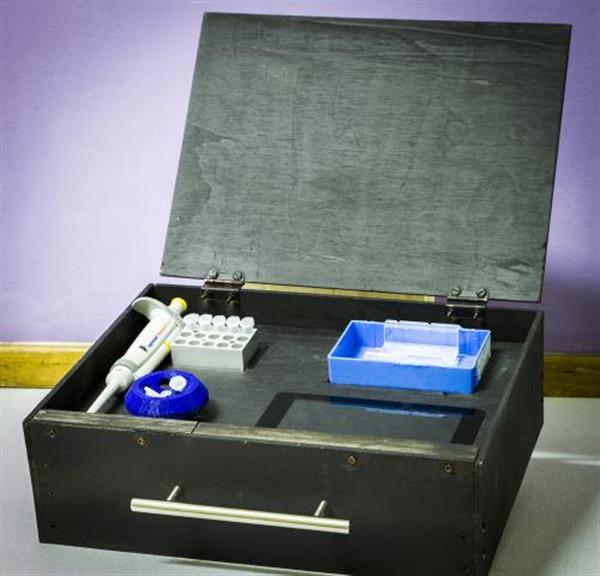The FieldLab is solar-powered and compact, making it suitable for conflict-ridden and remote areas requiring medical assistance.
Mobile labs have become essential miniature diagnostic kits in developing nations or hard to reach areas of the world. They can help relieve some of the burden on overwhelmed healthcare facilities as was the case during the Ebola outbreak in West Africa in 2014.
Traditionally, testing for the disease can take up to five days. However, with the help of mobile labs diagnostics can be sped up considerably to just a few hours.
According to the World Health Organization, mobile labs such as the GeneXpert facilitated robust surveillance of the outbreak in remote areas in 2015.
The kits usually consist of containers which, though useful, can be difficult to power in some of the more remote areas of the world.
Now, a team of students at Rhodes University in South Africa has developed a 3D printed solar-powered lab that comes in a box. The compact size and solar capabilities of the FieldLab make it exceptionally easy to transport.
This addresses the need for more easily deployable diagnostic kits, whilst ensuring that they are affordable and robust.

Rhodes University Researchers Bring Affordable Medical Laboratory to Remote Areas
Masters students Lucas Lotter and Charles Faul at Rhodes University explain that the FieldLab consists of a variety of 3D printed equipment.
This allows physicians to screen for viruses and bacteria and test samples in a similar way to how a laboratory would. However, the kit was specifically created for remote areas or those suffering from sustained conflict.
Among its laboratory capabilities, the FieldLab allows users to conduct DNA analysis, centrifuge samples and analyze the results. If additional pieces of equipment such as a microscope are required they can be easily added.
The entire kit costs just $1,500 which is a tenth of cost of traditional laboratory equipment.
The development of the kit was supported by a generous $73,000 grant from the South African government, Unicef, and other organizations. The team will utilize this funding to help bring the FieldLab to market in 2018.

Source: Rhodes University
License: The text of "3D Printed Solar-Powered FieldLab Makes Medical Diagnosis More Accessible and Affordable" by All3DP is licensed under a Creative Commons Attribution 4.0 International License.